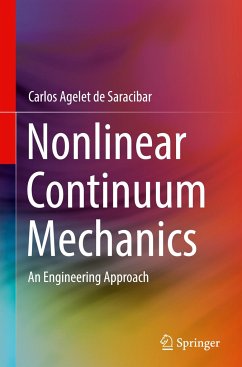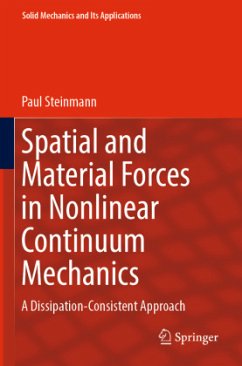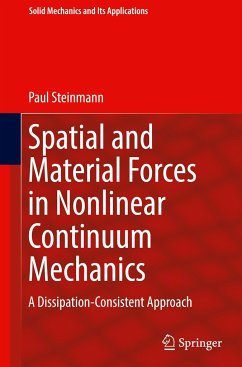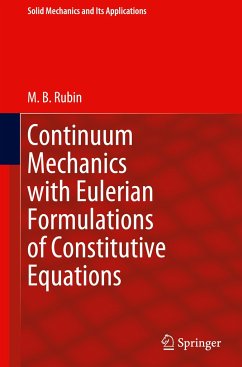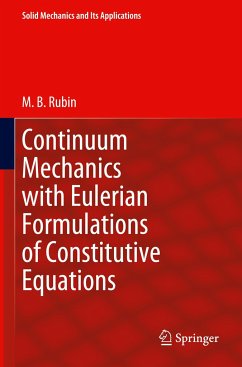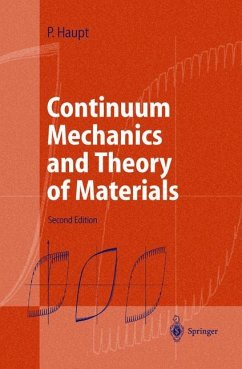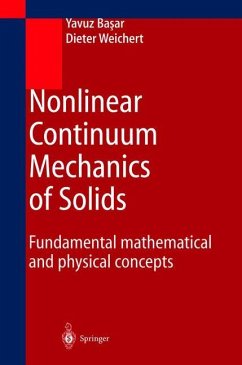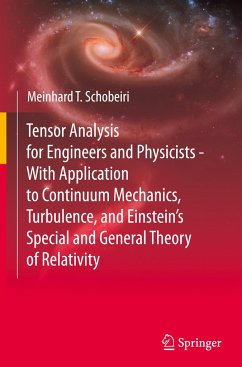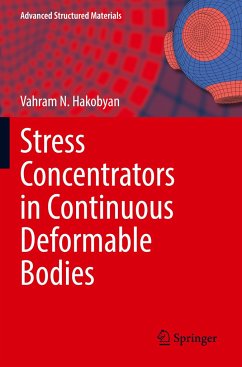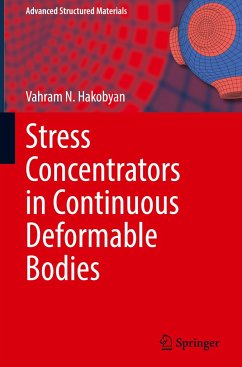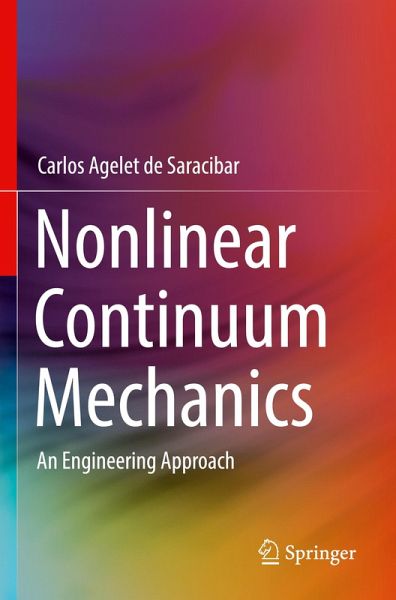
Nonlinear Continuum Mechanics
An Engineering Approach
Versandkostenfrei!
Versandfertig in 6-10 Tagen
53,99 €
inkl. MwSt.
Weitere Ausgaben:

PAYBACK Punkte
27 °P sammeln!
This textbook on Continuum Mechanics presents 9 chapters. Chapters 1 and 2 are devoted to Tensor Algebra and Tensor Analysis. Part I of the book includes the next 3 chapters. All the content here is valid for both solid and fluid materials. At the end of Part I, the reader should be able to set up in local spatial/material form, the fundamental governing equations and inequalities for a Continuum Mechanics problem. Part II of the book, Chapters 6 to 10, is devoted to presenting some nonlinear constitutive models for Nonlinear Solid Mechanics, including Finite Deformation Hyperelasticity, Finit...
This textbook on Continuum Mechanics presents 9 chapters. Chapters 1 and 2 are devoted to Tensor Algebra and Tensor Analysis. Part I of the book includes the next 3 chapters. All the content here is valid for both solid and fluid materials. At the end of Part I, the reader should be able to set up in local spatial/material form, the fundamental governing equations and inequalities for a Continuum Mechanics problem. Part II of the book, Chapters 6 to 10, is devoted to presenting some nonlinear constitutive models for Nonlinear Solid Mechanics, including Finite Deformation Hyperelasticity, Finite Deformation Plasticity, Finite Deformation Coupled Thermoplasticity, and Finite Deformation Contact Mechanics. The constitutive equations are derived within a thermodynamically consistent framework. Finite deformation elastoplasticity models are based on a multiplicative decomposition of the deformation gradient and the notion of an intermediate configuration. Different formulations based on the intermediate configuration, the current or spatial configuration, and the material configuration are considered. The last chapter is devoted to Variational Methods in Solid Mechanics, a fundamental topic in Computational Mechanics. The book may be used as a textbook for an advanced Master's course on Nonlinear Continuum Mechanics for graduate students in Civil, Mechanical or Aerospace Engineering, Applied Mathematics, or Applied Physics, with an interest in Continuum Mechanics and Computational Mechanics.



